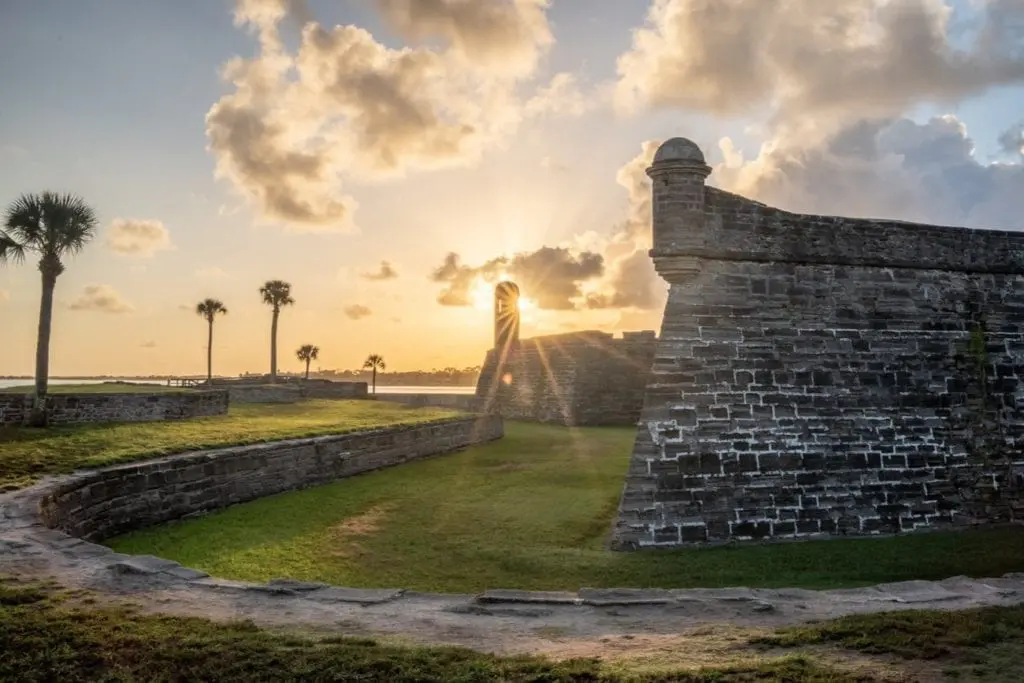Jacksonville’s early history is filled with many stories, both exciting and tragic. The history of Jacksonville has certainly been shaped by its unique climate and geography. But the characters and significant events that have taken place in Jacksonville’s past have made it the place that it is today.
Having a better understanding of the history of Florida and the history of Jacksonville, in particular, will help you better understand how things have changed over time. This rich history will provide you with a greater appreciation for the place and the people that have shaped Jacksonville into the place that it is today.
Let’s look at some of the most significant events and milestones in the early history of Jacksonville.
Before European Arrival
Florida’s early history began before Europeans arrived, and before the territory was known as “Florida”. Indigenous groups lived in the area around the St. Johns River since at least 500 B.C. While no written records exist from these groups, which included the Mocama and Timucuan Indians, they are mentioned in the accounts of early explorers in the area. The archaeological evidence that remains today provides greater detail about these groups.
Early European Encounters
Some of the first European settlers in Jacksonville were groups of French Huguenots. The Huguenots were a group of French Protestants who were forced to flee their native France. Religious persecution by the dominant Catholic majority had made it dangerous to practice Protestantism.
Jean Ribault, for one, led several French colonization voyages to the Florida area. Their first settlement was called Fort Caroline. While this fort was maintained for several years, it was eventually attacked by the Spanish colonists in the area led by Pedro Menendez. Jean Ribault’s fleet was tragically impeded by a storm and could not launch an effective counterattack. He was eventually captured along with the rest of his crew and executed.
Spanish Dominance In Florida
With the threat posed by the French Huguenots in the area eliminated, the Spanish dominated the colonial Florida peninsula. Fort Caroline became Fort San Mateo under Spanish rule. This system of power lasted for decades. The Catholic religion was spread throughout the region under the mission system.
Eventually, events in Europe would shift the history of Florida again. The Seven Years’ War ended in 1763. As part of the treaty to end the war, the Spanish gave up their Florida land holdings to the British Empire.
The British In Florida
British colonial rule in Florida was relatively brief and lasted approximately twenty years. During this time, the area’s agricultural sectors developed rapidly. New types of crops were added to the emerging plantation economy, including sugar cane. The Florida economy also became reliant on the African slave trade, and slavery spread throughout the territory. More settlers also came to the New World, and the population of Florida grew.
Under British control of the area, the early foundations of Jacksonville were established. The British settlement of Cow Ford, which was built at a crossing of the St. Johns River, would eventually turn into Jacksonville.
Finally, territorial Florida was returned to Spanish control in 1783. This transfer followed the American victory in the American Revolutionary War.
Moving Towards Modern American Florida
However, the Spanish were not able to maintain the Florida colony for too long. The United States was emerging in prominence on the world stage, and the Spanish Empire was in its decline. Under the presidency of Andrew Jackson, Spain eventually handed over Florida to the Americans.
Florida became an American state in 1821, and Jacksonville, which was named after the then-governor of the state, was officially established in 1822. Over the next several decades, Jacksonville became an increasingly important urban center in Florida. With extensive plantations that grew much of the United States cotton, among other commodities, the local economy maintained a steady level of growth.
Over the next decades, the American Civil War would also impact the development of Jacksonville. Early in the war, the city was taken over by Union forces. It was occupied for the duration of the war, which has played a role in making the city the way it is today.
Since the early twentieth century, Jacksonville has become a major tourist destination. The natural geography and climate of the area have made it an attractive place to stay for visitors throughout the years.
Learn More About The History Of Jacksonville
This brief overview has only highlighted some of the most significant events and characters that have been pivotal in the early history of Jacksonville. To have a comprehensive understanding of the history of the city and of the history of Florida, more generally, it is important to keep learning. Reading more about Jacksonville’s early days and exploring some of its historical and cultural landmarks will help you dive deeper into these narratives and understand the rich history of Jacksonville.
